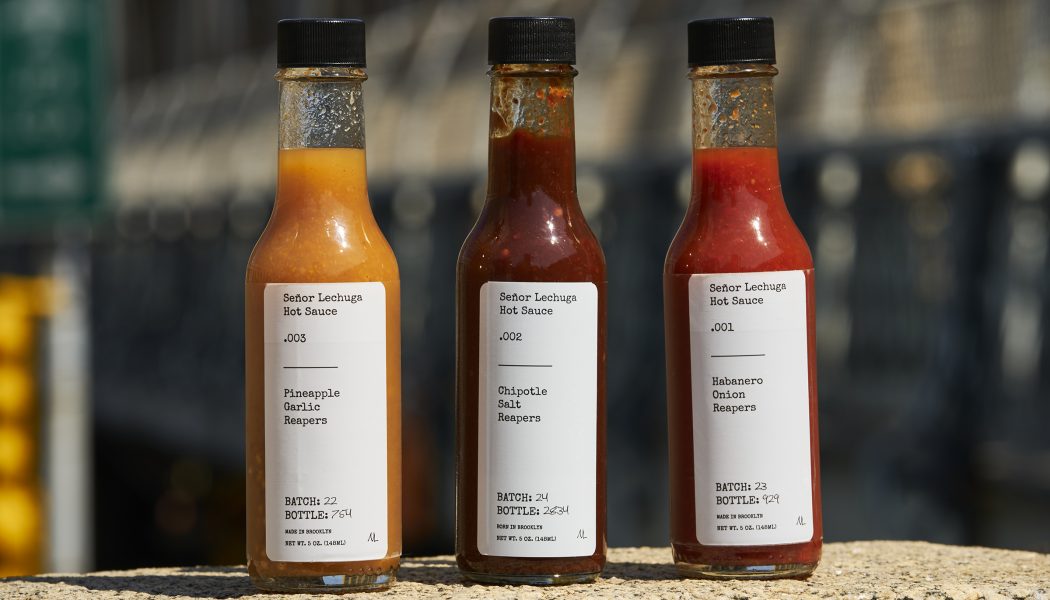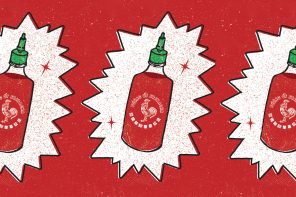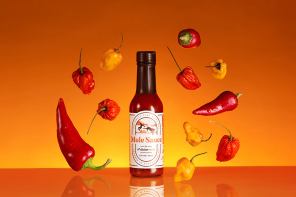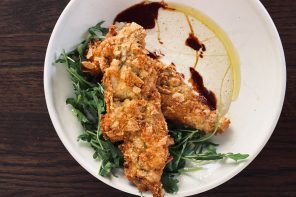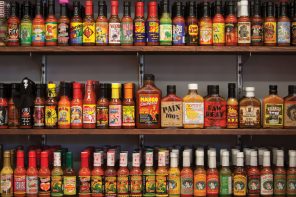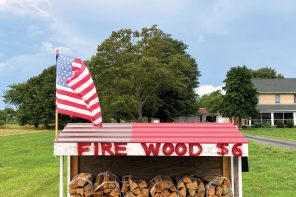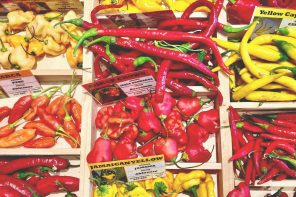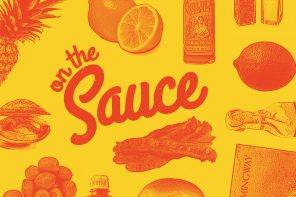First, How the Whalebone Hot Sauce Co. x Señor Lechuga Came to Be
We are not the types to go around doing things we don’t know how to do ourselves. Usually. There was that one time we tried to build out our own conversion van despite having little knowledge of wiring or cars or really any skill with power tools. So, let’s just ignore that time and the other time we tried to create a windmill to power the Boneyard and the entire neighborhood was without power for the better part of the day. So, let’s just ignore those two times and any other times, like when we tried to create that “self-cleaning” piraña tank, that you might want to throw back in our faces. Point is, luckily we knew Nico and Lauren from Señor Lechuga Hot Sauce. We’re not sure how much they know about changing carburetors on vans (so if you know anyone, let us know), but they sure did turn out to know a lot about hot peppers and hot sauce.
Which, as we’ve pointed out, we did not. We did know what we liked to put hot sauce on. Well our first answer to that question when they asked us what we liked to put hot sauce on—which was step one of creating the secret Whalebone x Señor Lechuga Hot Sauce Issue Hot Sauce—was “everything.” That turned out to be sort of unhelpful, but then we thought about clam bakes on the beach and Brew Co. accompaniments and we had a better answer that was something like, “Lobster rolls, clams on the half shell and scrambled eggs but also tacos.”
Mr. Lettuce headed into his lab, while Mrs. Lettuce and Baby Lettuce researched peppers and vinegars with us. We started to arrive at a flavor profile with the heat of habanero peppers and the deep red hue (and more heat) from guajillo chilis. After some taste tasting, which was our favorite part, batch 1 of The Hot Sauce Issue Habanero was born and introduced to the world with The Hot Sauce Issue. If you want to try some, you can head to one of the finest restaurants in the world, or order it only from here.
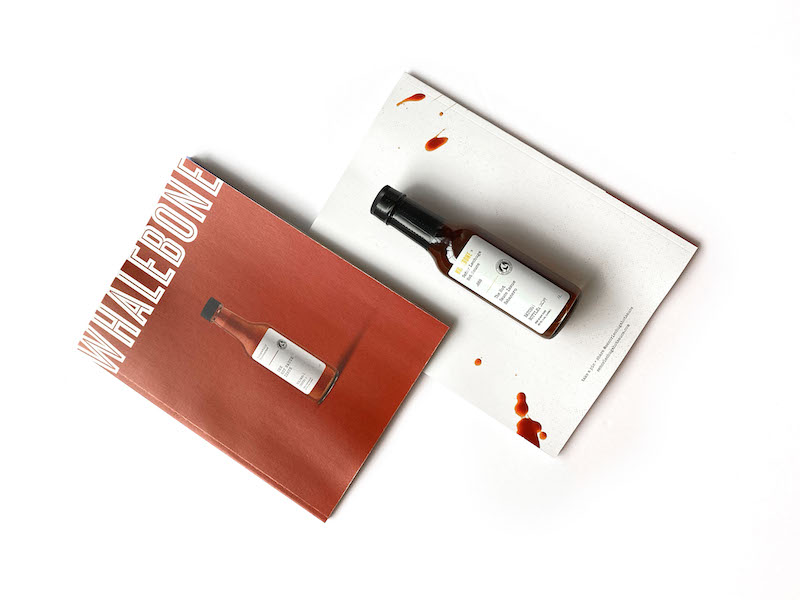
Señor Lechuga are masters of flavor and heat, with their own sauces full of flavor but also packing heat. The Whalebone Sauce is a bit more good natured and approachable but has a lingering heat that builds.
We sat down with the Lechugas, Nico and Lauren with a guest appearance from Baby Lettuce and the little Lettuce Jr. on the way, for a heated discussion about starting up one of the better hot sauce brands out there out of your kitchen in Williamsburg while you are super pregnant, laughing in the face of work-life balance, how Señor Lechuga Hot Sauce added the fire to Shake Shack’s special Game of Thrones burgers, and just being caliente as fuck and owning it.
A Peek Behind the Curtain of Hot Sauce Wonderland with Señor Lechuga
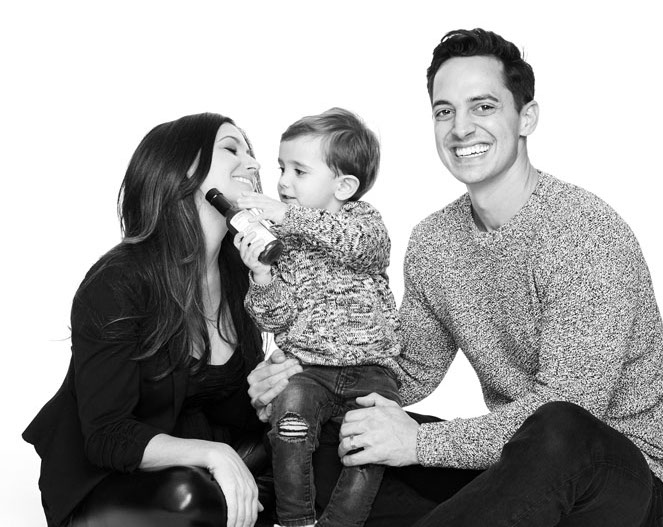
Can you give us a peek behind creating custom hot sauces, like the one you collaborated with Whalebone Magazine on for The Hot Sauce Issue?
Nico: If we’re creating a custom sauce, like the Whalebone sauce or Unido or Bronx Brewery, there’s this whole other fun part of it for us where we’re making a bunch of different versions. Then, over the course of, I would say, weeks and months having different people try that. So, it might be neighbors. It might be friends and family that are coming over and just sampling it. We want to try everything with different dishes…
Lauren: Or we like more than one, and we want someone we really respect like an esteemed chef or someone in the food industry who is in our network to sort of help us go in which direction that we choose ultimately.
Nico: That’s a fun process, because what ends up happening, too, is there was… The Unido one, I think we did seven different varieties before we came up with the one. There are these other sauces that you put together that are shelved and might never see the light of day, except for a few people who got to taste them. Some people had tried the other varieties, like, “Oh, I like this and this for X reasons,” but the one we picked at the end was-
Lauren: The. Best. One. Ever. My favorite. If the heat’s up or down or a few ingredients are interchanged. But yeah, people like to come over and taste test. It’s a good time. A lot of people. People who like heat. A lot of sweat on the brow.
Nico: Yeah. That can be fun, and then just trying them on different food. Some of the things, the processing from flavors, is before it even becomes a hot sauce. Dialing it in with other flavors. Like a lobster roll. So, we had used the Whalebone sauce and were saying one of the peppers we knew a while ago that we wanted to incorporate in some hot sauce was guajillo pepper, very widely-used pepper in Mexican cuisine. It seemed, to us, this perfect pepper to balance out this hot sauce that you guys were talking about to bring some sweetness to that habanero and give you this traditional kind of Mexican hot sauce taste that you might get from a street vendor in Mexico city, a taqueria, and bring you there. Having that pepper that we use by itself on fish, on eggs, and then being able to incorporate that with some of the other elements, we felt pretty good about the hot sauce.
Lauren: Really good. It’s fresh. It’s clean.
We haven’t had any complaints yet. So maybe we did it. Thanks for that. Have you ever grown any peppers yourself to experiment or play with?
Nico: Yes, we have actually two Carolina Reaper plants in the backyard and one habanero plant that’s actually… They’re growing right now, because they’re perennial. I think at some point it would be really cool to, depending on how the company grows and the footprint of the company, be able to use probably indoor farming to lower the carbon footprint and be able to have all of your own peppers and your produce there and control that and not have to import or buy from anybody else.
With them being perennial peppers, you can really only… You really plant them at the beginning of summer or slightly beforehand, then you get the fruit at the beginning of fall. Then, they die. You’ve got to do it again.
But this time of year is absolutely amazing. The tomatoes that you can get right now, the peppers, everything’s fresh, local, organic. Amazing.
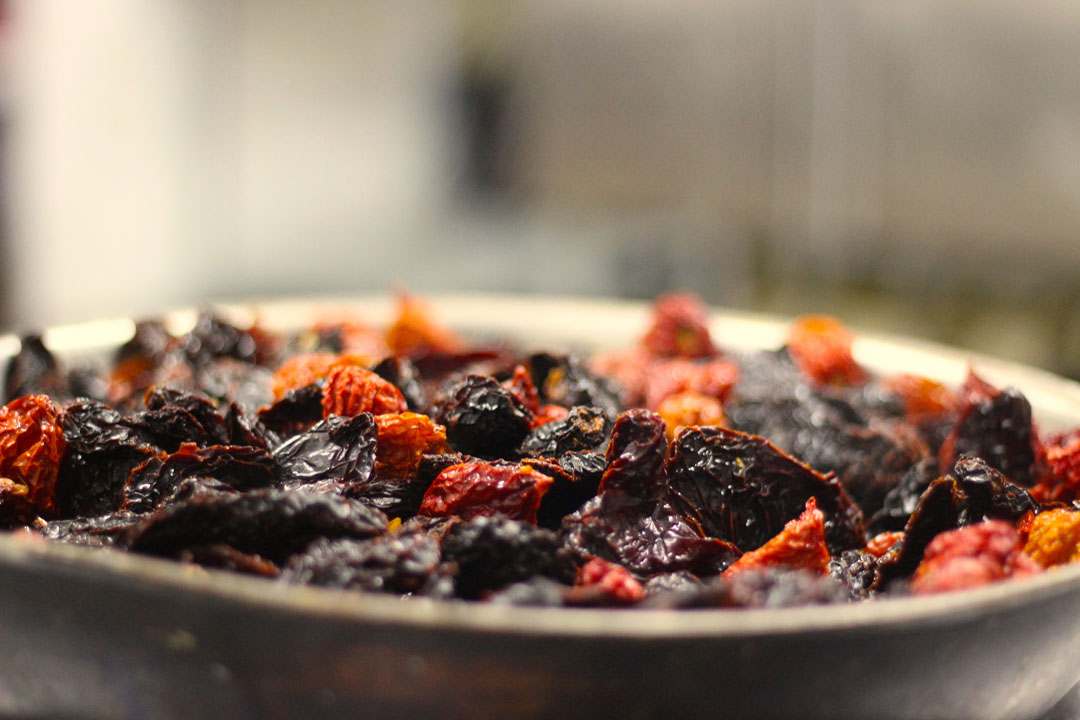
So, you started out making sauces basically for yourself, for your own cooking and for your family. When did the idea to turn this into a company come into play?
Nico: We made these sauces in our kitchen in Brooklyn, and we like entertaining a lot. We liked having people over and being able to break bread with those people and share food. For me, cooking was so much about sharing good food with other people. It just became part of the natural part of our dishes for a period of time. These sauces that we had made were used at barbecues and dinners and what not.
What ended up happening, and I think it resonated with people, was we had these sauces that had this heat and this flavor and really a sauce that could be used for the majority of all dishes. We had three different ones, and really, you could find something that paired really nicely. People like that this was this clean product. There was no emulsifying agents in it. There was no coloring.
And people kept saying, “Wow, if you made this, I would buy it.” I think after a number of times hearing that… Being in New York, I think one of the cool things of being in New York and probably any major city is you have access to a lot of resources. So, I started to do a little research.
Lauren: Nico is modest. People were very emphatic. People were like, “You should sell this.” Very strong feelings about it. Not like a compliment, but very strong feelings like, “You should sell this. You could market this. People would buy this. This is different.” There’s a lot of sauces that have flavor out there. They don’t have the heat. There’s a lot of sauces that have heat, but you don’t taste the flavor anymore. Because there’s so much heat, it almost overpowers the palette. So, these are people who were like, “You absolutely should sell this.”
I didn’t think he was actually going to do it.
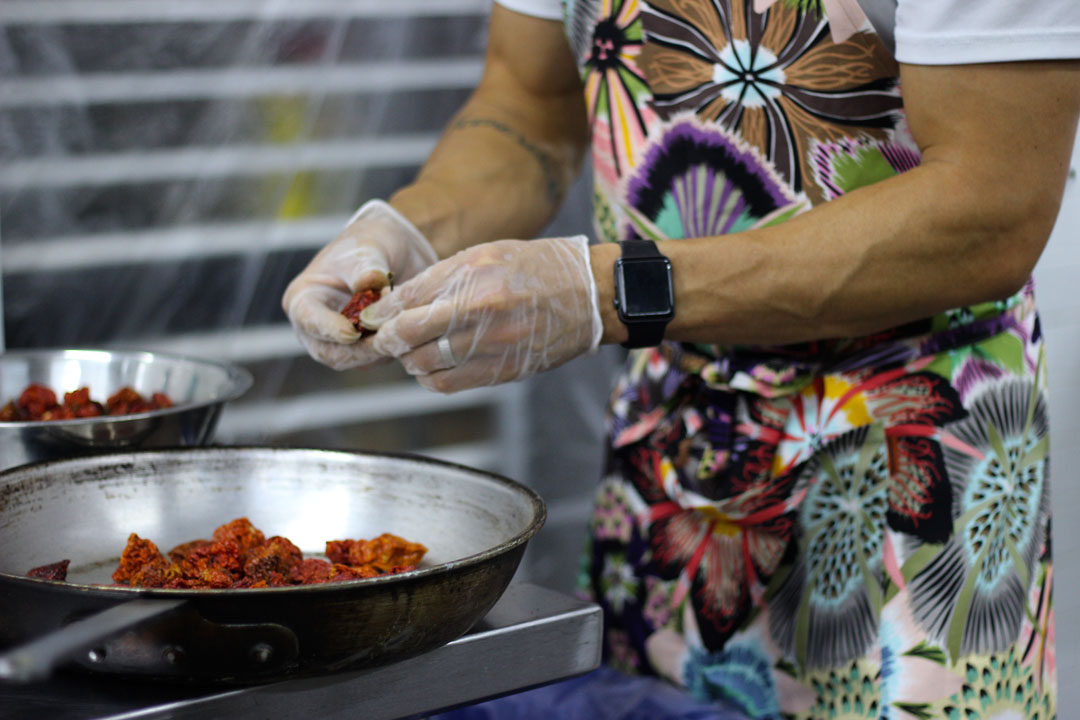
Nico: Illegally, we produced hot sauce out of our apartment, not knowing it would be illegal if we sold it at the time period. A lot of companies you break a lot of rules initially. We produced, I think it was, 12 bottles. I was just curious. I put a label on it that we designed and we were friends with the deli owner downstairs. He put them on the countertop of the deli downstairs.
Lauren: Right off of McCarren Park in Williamsburg, so a very, very highly populated, highly trafficked area.
Nico: They moved. They sold 12 bottles, I think, in a weekend. People came back and bought like four bottles.
Lauren: Some of the people were like, “How do I get more of this? I don’t live in New York. Where do I get this?” He was like, “I don’t know yet.” Our website wasn’t ready. We weren’t actually there.
Nico: So, I think I turned around to Lauren, “Hey, I think I’m going to look at doing this.” I researched different kitchens in New York, and it looked like you could book time by the hour. I thought I could fit it in with my job at that time period at night. I treated it like any other thing that you do. You kind of figure it out as you go. So we just jumped in.
Lauren: We were super pregnant, too, at the time. We didn’t really think that the momentum, the speed at which the company and the partnerships would grow, would be what it ended up being. So, we also thought we had a lot of time, and this is going to be leisurely. It was a passion project, and I was just going to help here and there on some creative things and some branding elements. But, we really… I don’t think either of us ever saw into the future that this would be our full-time job, and we would have such great brand partners and retailers.
What’s one good thing and one challenging thing about being a husband-and-wife as business partners like that?
Nico: I think there’s no “off,” right?
Lauren: Yeah, that’s the biggest challenge.
Nico: There’s no separation in that work-life balance. Moderation is for cowards, and balance is not possible.
Lauren: Right, it’s like a work-life blend. It’s never… There’s no balancing.
Nico: So, that can be the best thing in the world where if we’re want to get something done very, very quickly or efficiently, we can do that, because we live together. We work together. We like… Then, on the other side…There is a downside to that. It can be hard in certain moments to draw a line.
Lauren: I think a lot of people are experiencing this now with the pandemic where they’re not really understanding what the work-life boundaries are, but we live that all the time. So, for us, it really wasn’t that different. Not having childcare or having school, preschool and not having babysitters or family to watch our kids, that’s a whole other story. But, the idea of work happening at any time, because you’re both available, that was part of our life before, and so that just is natural to us. So, we can get a lot done. We’re super efficient, but then also, how do we then create proper family time? So, we’ve figured out ways to do that with meal time and with bath time and night time. We have figured it out, but it definitely can be a challenge.
But then, I think one of the awesome things is just crushing our dreams together. When we have a big win, we celebrate.
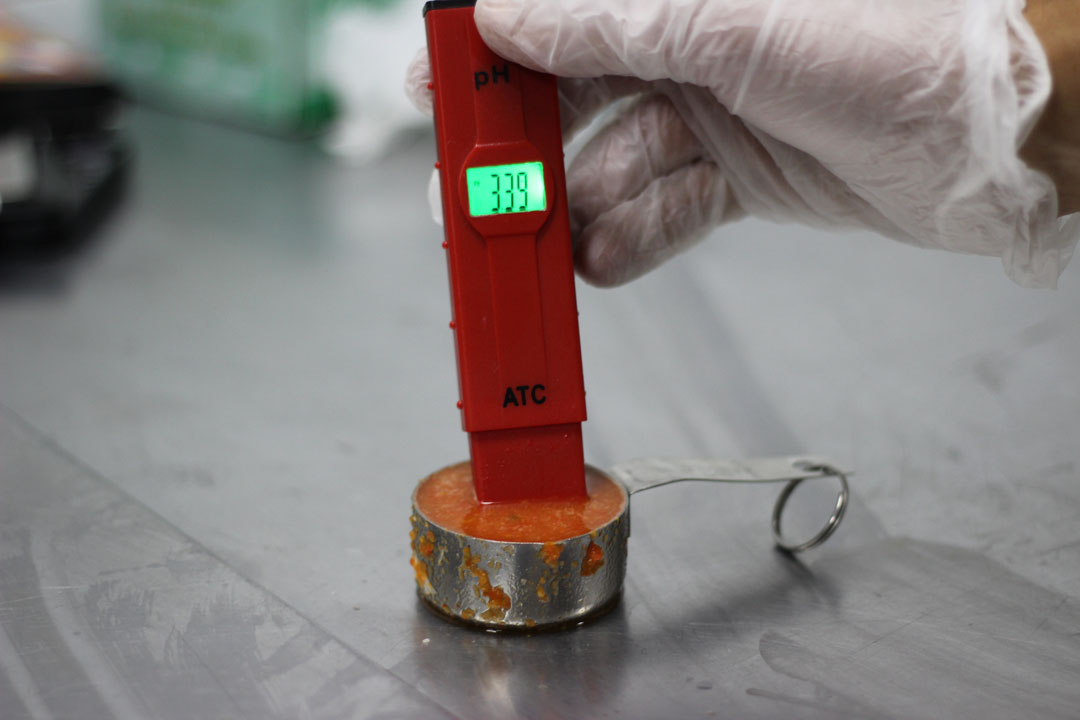
If the label design is pretty straightforward, which is refreshing in light of so many sort of more colorful cartoon-y labels—the slogan’s really, really straightforward. “Caliente as fuck.” So who gets the copywriting credit on that?
Nico: That’s all Lauren.
Lauren: I was like, “Okay, we need a hashtag.” I was brainstorming hashtags. I’m like, “What do you think of #calienteasfuck?” He’s like, “I love it.” I’m like, “Okay, that might not go over with all retailers. Do we want to do #calienteAF? That might limit us, but let’s think about it. I really like #calienteasfuck.” He was like, “No, I love it.” I was like, “Okay, let’s think about the ways that it would benefit us, because it definitely says what it needs to say. It’s very clear what we’re about, and it’s fun. It’s a fun hashtag, but let’s just think in bigger picture, long term, would we ever have to abandon it? Would there be a partner that would be worth it for us to maybe switch, or are we going with it?
And Nico’s like, “You know what? That’s who we are. If we’re going to go for it, let’s just go for it and not shy away from it.” I was just, “Okay, done.” That was another thing we checked off that list. We’re like, “Okay, forevermore, we’re going for this. If a brand doesn’t dig it, they’re not the brand for us.”
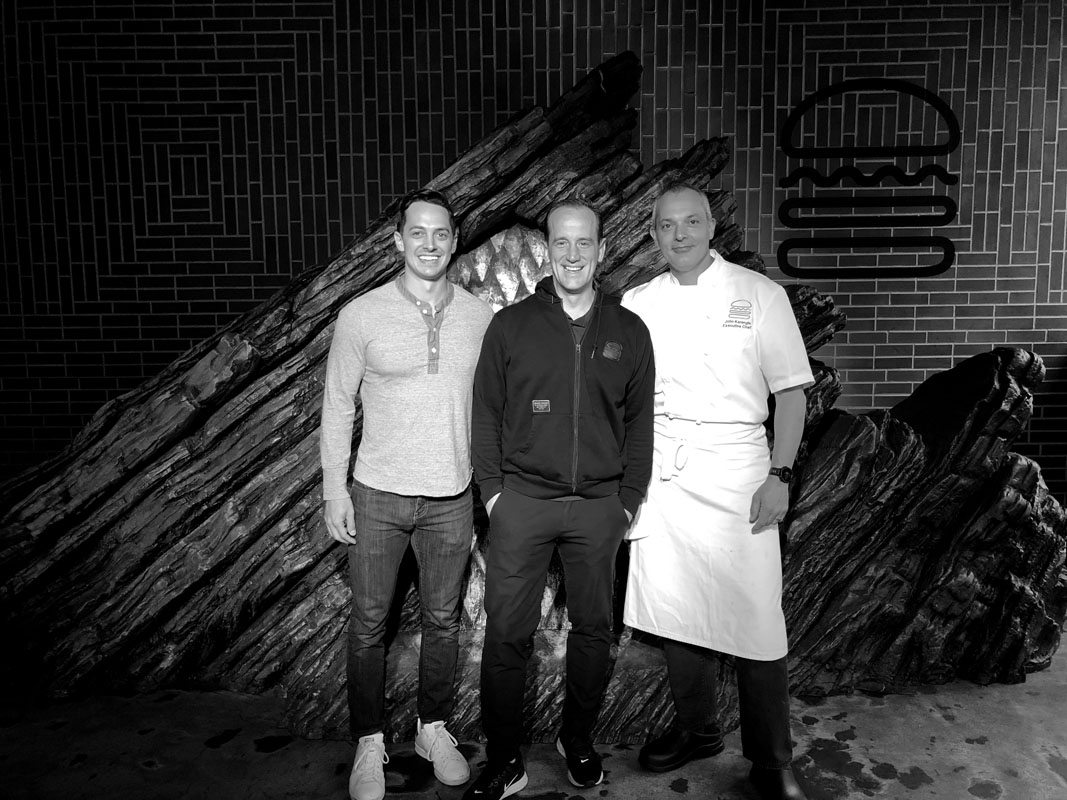
Did you guys have to learn to speak Valyrian when you created the hot sauce for the fiery Shake Shack Dracarys Burger?
Lauren: I got the phonetic breakdown, but I definitely did not do it justice. There was one person that we know that was at the launch event for the Game of Thones menu, who nailed it perfectly. She also is obsessed with heat, and she could eat the hottest of hot sauces. So, she sort of was our tutor.
Shoot, because we were going to conduct the rest of the interview in that language. But good, because we don’t really know what it is. How did that Game of Thrones burger with Shake Shack come about anyway? Was there a process to getting picked? Did Shake Shack approach you?
Nico: I feel like a lot is putting yourself in the right place over and over again. Then, things start breaking for you. So, if we back up a step, Lauren was taking a SoulCycle class in Williamsburg, and Domino Park had just opened up. I was walking our son, who was probably seven months at the time period, across the Domino Park waterfront. Danny Meyer had just opened this restaurant Tacocina there. We’d always have a few bottles of hot sauce on us. I knocked on the window of Tacocina and asked if I could speak to the manager. Barbara Garcia, who it turns out is the GM and Head Chef of the location, came up. She’s awesome. She’s so nice. I said if they were looking for any hot sauce, gave her some samples, and that was it. She respectfully said bye, and I thought nothing more of it.
Then, she reached out about a week later, not even with contact information, which I gave her, but through our corporate submission on our website, saying that her team had tried the hot sauce, the Innovation team, and really liked it and wanted to do a limited edition collaboration for Labor Day. They were figuring out which hot sauce they wanted at Tacocina. End of the story, they ended up going with our pineapple sauce and the item actually stayed on the menu and you can still get it today.
Lauren: The Game of Thrones ShackBurger was the result of that partnership.
Nico: Yeah, the chef had started following us from it, John Karangis, who we followed back on Instagram. I DM’ed him and I said, “If you ever need any hot sauce, let me know.” During that, he was the Executive Chef of USHG events division who was in charge of the menu creation for Tacocina. So, he had tasted that hot sauce and liked our hot sauce. He said he was leaving USHG for a new company and didn’t say what it was. Turned out, he became the first Executive Chef at Shake Shack. We ended up meeting him for a coffee a number of months later. I gave him more hot sauce, which he in turn gave to his team, and we thought nothing of it at all.
We thought nothing of it, because there was no set time period as to if we would even do anything with them. John, a month later, I think at 8:00 a.m. on a Saturday, texted me and said, “Do you have time to talk?” I said, “Of course.” So, we jumped on the phone, us and Mark Rosati, who’s their Head of Culinary, and we started talking through… Mark had a bunch of questions regarding logistics and funding and our supply capability, and he was like, “The sauce. We’re using the sauce right now in a menu item. We need a spicy menu item.” Didn’t say anything about it. It was super, super ambiguous, and “It’s competing against seven other spicy menu items, and we’re going to pick one for this big, big collaboration.” We don’t really know that size of it or what it’s going to be at the time period, but it should be massive. We thought nothing at that time period. I think a week later John called and was like, “All right. We’re going to use the sauce. Other people from Shake Shack will be in touch.”
Then legal reached out. We got handed an NDA from them, and it became apparent that it was going to be this burger for the final season of Game of Thrones. That was fucking awesome. And they were so cool. They brought us in on every single part of that promotion. They brought us into the development, the rollout, the opening events, the launches. They made us really feel like we were part of it.
The burger looked really tasty.
Lauren: It was really, really good.
Nico: It was fucking good. They ended up going to, I think, 13 Shake Shacks across the country. So, their best ones with the kitchen capability to put it together, and it tripled their initial expectation. Within days, we were having to send extra hot sauce to–
Lauren: Like extra cases. They originally placed orders for different locations throughout the country, and then within days, those orders were being duplicated. They needed to get more sauce immediately to continue the rollout of this huge collaboration.
Nico: We were overnighting cases of hot sauce. I’ve never seen shipping fees so expensive. They just didn’t care. It was so successful.
Lauren: They had told us it was going to be their biggest collaboration to date that they’d ever done, and then it ended up being their most successful to date after. So, that was really, really cool to be a part of that, especially because it was a fire and ice theme. So the ice with the shake and the fire with the burger, but there was nothing in the burger that was hot but our sauce. So, without our sauce, it wasn’t a fiery burger. So, that was nice to know we were the key ingredient in that regard, and so, that was pretty cool.

